Keywords: Language
There are more than 200 results, only the first 200 are displayed here.
-
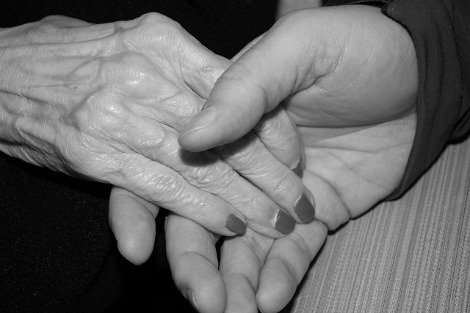
ARTS AND CULTURE
- Gillian Bouras
- 07 October 2015
9 Comments
Well, I know the dehumanising rot began to set in a long time ago. I have a vision of George Orwell sitting on a cloud and wringing his hands in renewed horror, for now the business model and associated language appears to have taken over the world. In short, the changes in aged care could be counterproductive, as the aims of streamlined access and equity may result instead in the development of barriers and more inequity. Growing old clearly means more hard work, and more adjustment.
READ MORE 
-
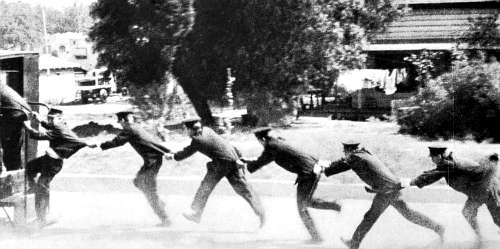
AUSTRALIA
- Kerry Murphy
- 04 September 2015
18 Comments
While we can shake our heads and laugh at last week's farce in Melbourne, we should be more concerned about the many ways this government is punishing refugees in the law, using language to demonise people and and setting up systems geared to rejecting applications. We don't need black uniforms and guns, or any form of militarisation and politicisation of Immigration.
READ MORE 
-
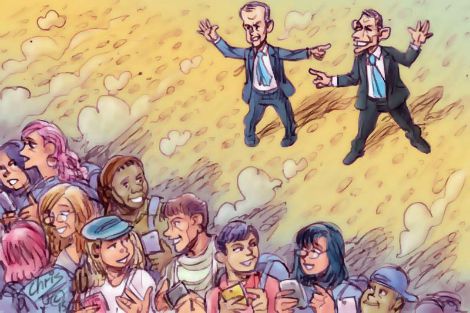
AUSTRALIA
- Clancy Wright
- 17 August 2015
17 Comments
Sixteen and 17-year-olds shape society and culture through language, music, sport, arts and fashion. They challenge boundaries and push cultural trends up through our social fabric. They engage with technology and future ideas in a way that many older generations would fine overwhelming and confusing. We need this enthusiasm, this creativity and proven inclination to take risks in order to question our society's established methods and bring colour and life back to the broader political debate.
READ MORE 
-

ARTS AND CULTURE
- Tim Kroenert
- 13 August 2015
The characters, black and poor, inhabit a world where violence is as an expression both of material want and of dignity. One scene sees Marieme and the members of her all-girls soccer team walking home after dark. The girls are garrulous. But in the shadows of the flats, male voices utter vaguely threatening suggestive remarks. The chatter dissipates to silence as the group dwindles to individuals. It's a quietly harrowing picture of women's too-frequently justified fear of violence from men.
READ MORE 
-
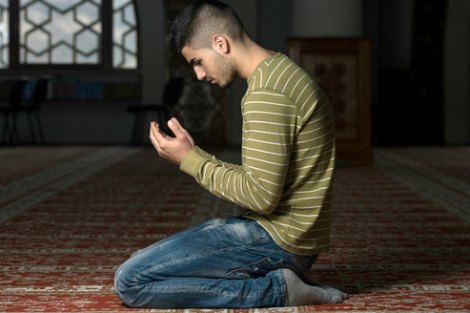
AUSTRALIA
- Andrew Hamilton
- 02 July 2015
18 Comments
Against the background of Australia's migration history, we can see the importance of Muslim groups maintaining their own praying community and culture including the use of their native language of worship. This will inevitably change with successive generations, but the pace of this is a matter for the communities themselves. The most harmful thing native born Australians can do is to pressure migrants to abandon their cultural roots in order to fit our expectations and to placate our fears.
READ MORE 
-

- Sean McManus
- 25 June 2015
4 Comments
As much as any other religious figure in Australia, Frank Brennan has maintained a religious perspective while engaging in issues of ethics and justice in contemporary Australia. His book Amplifying that Still Small Voice emphasises the importance of the 'religious sense that the human person is created in the image and likeness of God', while speaking in the language and terms that are understandable to the public square.
READ MORE
-
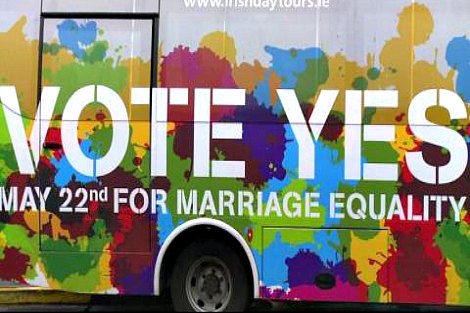
AUSTRALIA
- Gerry O'Hanlon
- 27 May 2015
56 Comments
Archbishop Martin voted no in the gay marriage referendum. But after the result, he says the Church needs ‘a reality check across the board’, and that means more than a new language. When Church teaching is invoked to bar women from office, to forbid contraception and condemn homosexual relations as intrinsically disordered in a way that conflicts with the ‘sense of the faithful’ of so many of the baptised, then the Church, despite the many wise things it has to say, loses credibility.
READ MORE 
-
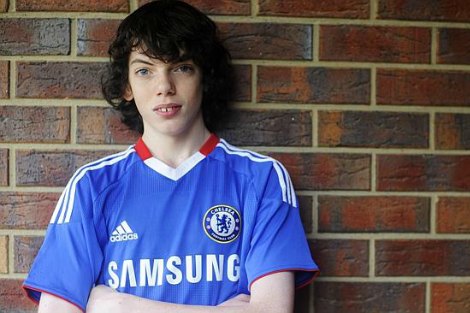
ARTS AND CULTURE
- Ellena Savage
- 20 March 2015
13 Comments
The language of martyrdom is being used to recruit young Australians to brutal stateless warfare. Because martyrs are morally superior to suburban burnouts. IS propagandist Abu Ismail described Melburnian Jake Bilardi as 'a lion on the battlefield although he was at a young age and with a weak body'. So, Bilardi was a weak young lion and therefore ripe for battle. How obscene!
READ MORE 
-
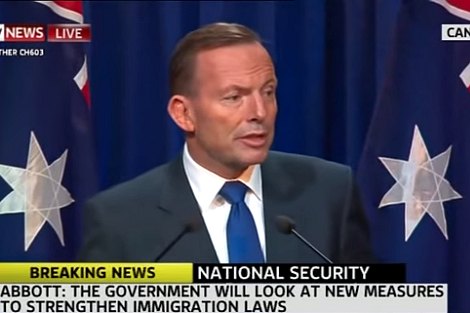
AUSTRALIA
- Kerry Murphy
- 03 March 2015
10 Comments
Prime Minister Abbott's National Security Statement quite rightly spoke of threats to Australia and the need to address them. Many of his utterances might seem uncontroversial: 'Those who live here must be as tolerant of others as we are of them'. But in fact they ignore the way people 'who come here' are treated according to 'how' they came here. The language used to describe them reflects an attitude that is far from tolerant.
READ MORE 
-
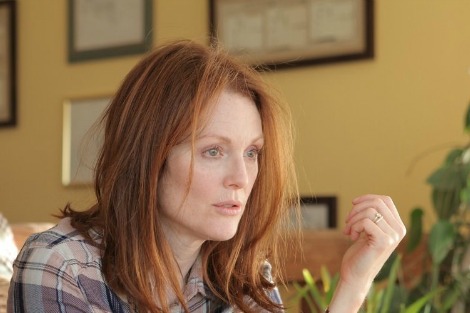
ARTS AND CULTURE
- Tim Kroenert
- 05 February 2015
2 Comments
The brilliant linguistics professor Alice Howland and her biologist husband, John, sit down to break the news to their adult children: Alice has early-onset Alzheimers. At first Alice maintains a fragile, trembling stoicism. But when she tells them the disease may be passed on genetically, the façade slowly implodes. 'I'm sorry,' she weeps, horrified by the prospect of what she clearly sees as a betrayal.
READ MORE 
-
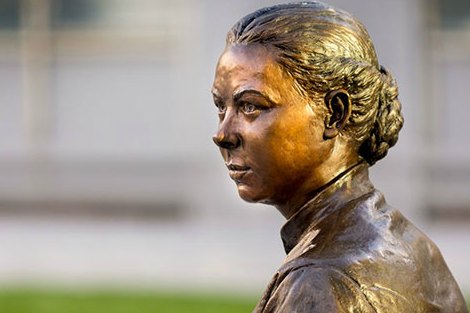
ARTS AND CULTURE
- Brian Doyle
- 16 December 2014
4 Comments
I can tell you that Fitzroy always was and will be a wry wilderness; Every colour and ethnicity and language you can imagine lives there... And now I see wee quiet shy Mary MacKillop there, minding a shop. She is fourteen. Her people are Scottish. She will be legendary, later.
READ MORE 
-
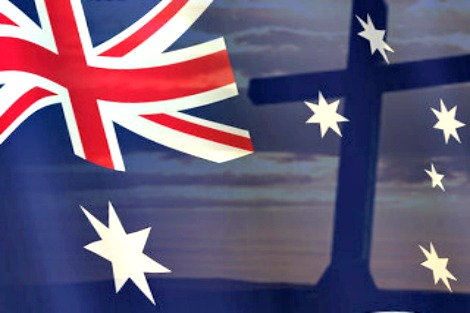
AUSTRALIA
- Irfan Yusuf
- 22 August 2014
128 Comments
Australia is a Christian country. We wear Christian clothes. We eat Christian food, speak Christian languages. Pardon the scepticism but I don't believe all this 'Christian values' nonsense, and I won't be lectured to about my alleged failure to integrate.
READ MORE 